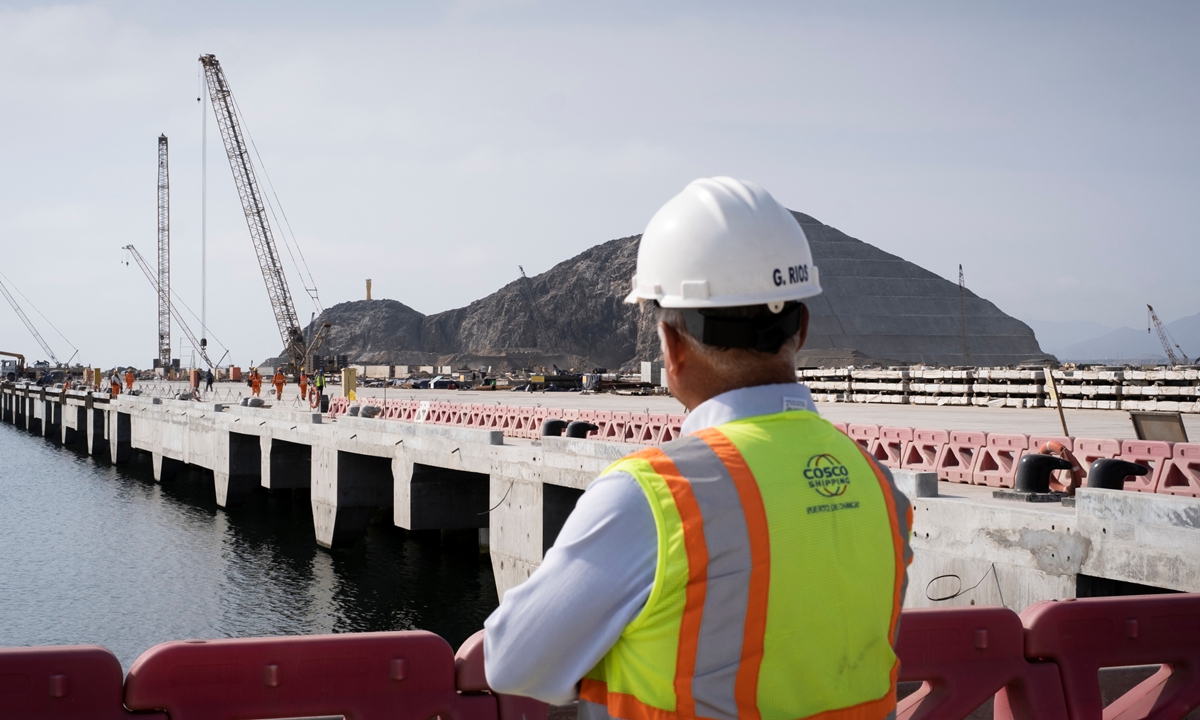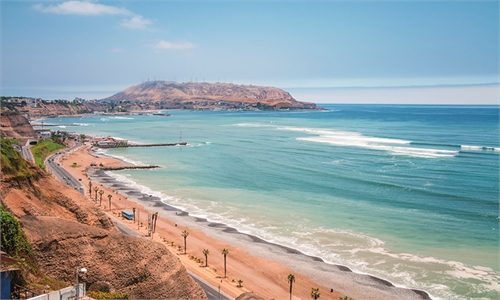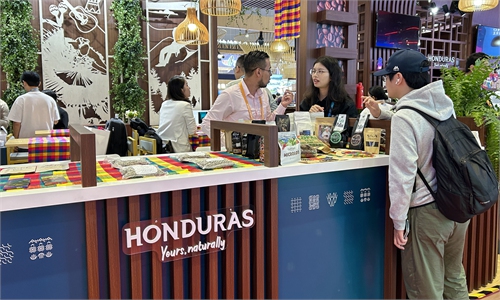IN-DEPTH / IN-DEPTH
Chancay port a highlight of China-Peru win-win collaboration despite US pressure

A staff stands at the construction site of the Chancay Port in Chancay, Peru, on March 5, 2024. Photo: VCG
Chinese President Xi Jinping said Friday that China stands ready to work with Peru to advance the comprehensive strategic partnership to new heights. Xi also urged joint efforts for the completion of Chancay Harbor on schedule, the Xinhua News Agency reported.
Xi made the remarks while holding talks in Beijing with Peruvian President Dina Ercilia Boluarte Zegarra, who was on a state visit to China from June 25 to 29.
Xi said that Peru is one of the first Latin American countries to establish diplomatic ties and a comprehensive strategic partnership with the People's Republic of China, and is the first Latin American country to sign a package of free trade agreements with China.
Hailing the fruitful outcomes of bilateral cooperation in various fields, Xi said Chinese enterprises have played an important role in Peru's economic development and the improvement of people's livelihood through major cooperation projects.
Xi also said both countries should work together to ensure the timely completion of the Chancay port.
The Chancay Port is a megaproject in northern Lima that has been dubbed "the gateway from South America to Asia." Cosco Shipping Ports, a Chinese state-owned company, acquired a 60 percent stake in the Chancay port terminal, Caixin reported.
One important highlight of win-win bilateral cooperation between China and Peru is the completion of the Chancay port project, which is the first large-scale transport infrastructure project implemented by China in Peru, and a landmark project of the BRI in Latin America. It is expected to become an important transport hub and logistics center on the South Pacific coast.
During an interview with the Global Times recently, Juan Carlos Capuñay, former Peruvian Ambassador to China and Asia expert, described the project as "a significant initiative aimed at developing a national infrastructure system that will enhance national economic integration, regional, and the world connectivity."
"The port project will serve as the primary logistical and operational hub for connecting South America with the Asia-Pacific region," the former envoy said, giving the example of how the port will help reduce the sea transportation time for cargo between South America and Asia, which will result in significant cost savings in shipping goods to and from China and other Asian countries.
When the Chancay port is put into use, it will significantly reduce shipping time between China and Latin America, and help elevate trade not only between China and Peru, but also benefit the continent, Wang Youming, director of the Institute of Developing Countries at the China Institute of International Studies in Beijing, told the Global Times.
Peruvian authorities hope the Chancay port will become a hub in the South American Pacific, but the project has upset players in the US seeking to stop a rise of Chinese influence in Latin America, Reuters reported.
General Laura Richardson, commander of the US Southern Command, previously voiced unease over the Chancay port, saying it sits on America's "20-yard line," following a US Council on Foreign Relations report identifying it as a China-backed maritime project that could be converted for military purposes.
Before Boluarte's visit to China, the Peruvian government just asked a judge to withdraw its request to revoke exclusive operating rights from China's Cosco Shipping Ports for the Chancay megaport, Reuters reported.
The decision helped to eases tensions between the two countries ahead of the visit.
The Peruvian president's latest visit has not only demonstrated the country's strategic autonomy despite US pressure, but has also sent a strong message: Peru chooses to cooperate with China for development, rather than bending under the pressure from the US, which has been trying to force out Chinese companies from this Latin America country, said Wang Youming.



